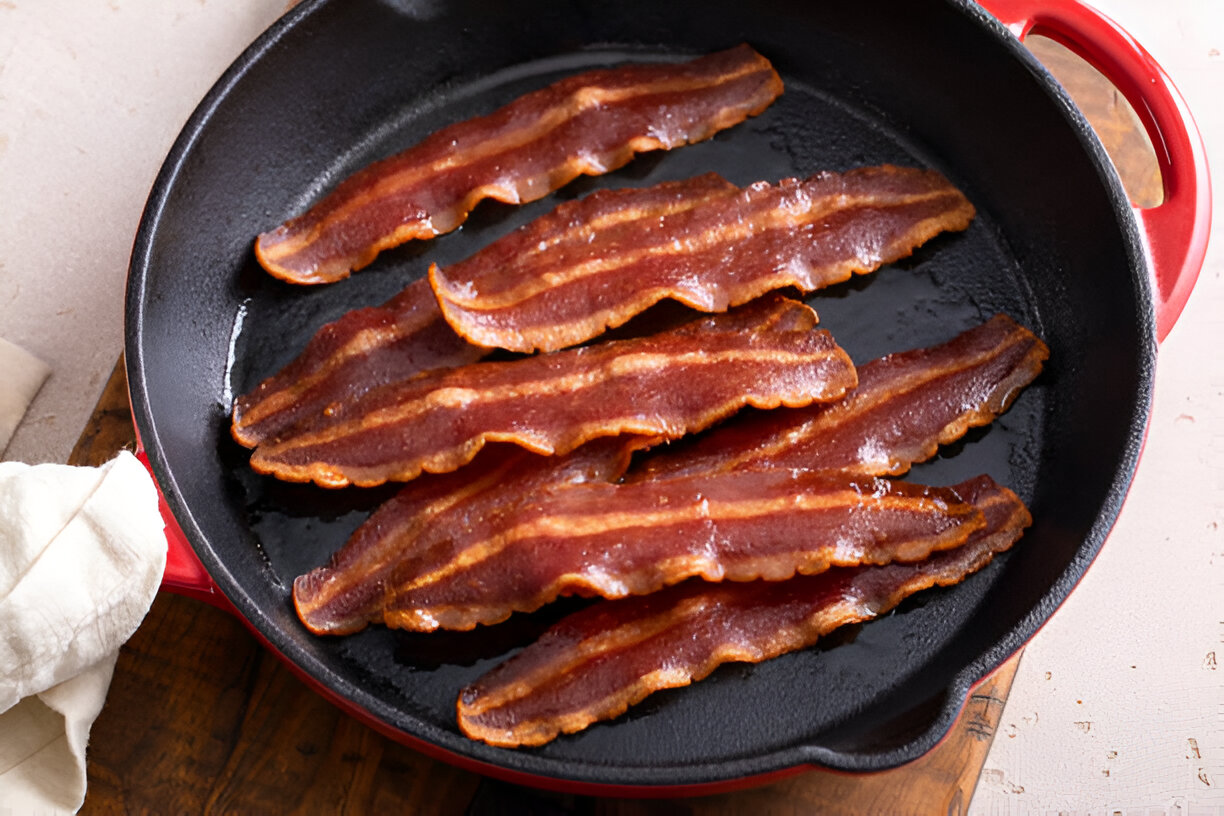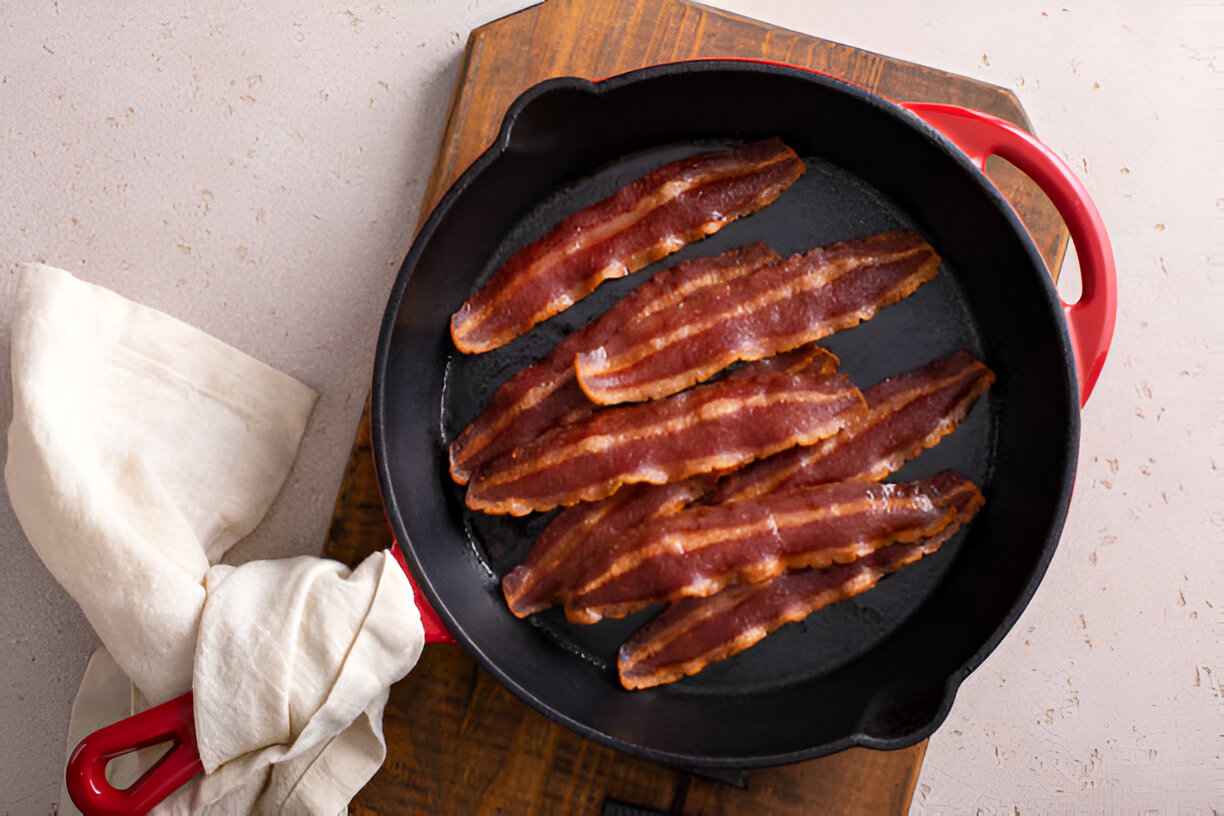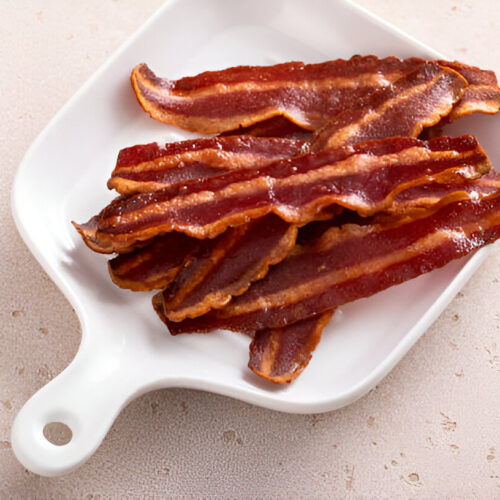Turkey bacon has emerged as a popular alternative to traditional pork bacon, captivating the taste buds of health-conscious consumers and culinary enthusiasts alike. Made from turkey meat that is seasoned and shaped to mimic the characteristics of pork bacon, this product has gained traction in recent years as more people seek lower-fat, lower-calorie options in their diets. While some may view it as a substitute, many have come to appreciate its unique flavor and versatility in a variety of dishes.
One of the key factors behind turkey bacon's increasing popularity is its reputation as a healthier choice. With rising concerns about heart disease, obesity, and overall health, many individuals are opting for lower-fat and lower-calorie foods. Turkey bacon typically contains less saturated fat than traditional pork bacon, making it an enticing option for those mindful of their dietary intake. Additionally, the shifting preferences towards leaner proteins have bolstered its presence on grocery store shelves and restaurant menus.
This article aims to provide a comprehensive look at turkey bacon, exploring its definition, nutritional benefits, cooking methods, and the common misconceptions surrounding it. Whether you're a longtime fan or new to this culinary trend, this guide will offer valuable insights and practical tips for incorporating turkey bacon into your meals.

What is Turkey Bacon?
Turkey bacon is a type of bacon that is made from ground turkey, typically processed with additives, seasonings, and other ingredients to replicate the flavor and texture of traditional pork bacon. Unlike conventional bacon, which is sliced from the fatty parts of the pig, turkey bacon is crafted by blending turkey meat with various ingredients to achieve a similar smoky, savory taste. This product has been created to cater to those looking for a healthier alternative that still delivers on flavor.
The origins of turkey bacon can be traced back to the desire for lower-fat protein options. As dietary preferences shifted towards healthier eating in the late 20th century, the food industry began to innovate by developing turkey-based products that would meet consumer demands. Today, turkey bacon is a staple in many households, often found alongside its pork counterpart in grocery stores and on restaurant menus.
Nutritional Comparison
When evaluating turkey bacon against traditional pork bacon, several key nutritional differences emerge that underscore its appeal as a healthier option. One notable distinction is in calorie count. A standard serving of cooked turkey bacon typically contains fewer calories than the same serving of pork bacon. For example, while pork bacon may contain upwards of 42-50 calories per slice, turkey bacon can range from 25 to 35 calories, depending on the brand and preparation method.
Fat content is another critical area of comparison. Turkey bacon generally boasts lower total fat, particularly saturated fat, which is often a concern for health-conscious individuals. A slice of turkey bacon may contain approximately 2-3 grams of fat, whereas pork bacon can have around 3-4 grams per slice. Additionally, the protein content in turkey bacon is comparable to that of pork bacon, providing about 2-4 grams of protein per slice, making it a decent source of lean protein.
Sodium levels also vary between the two types of bacon. Since turkey bacon is often seasoned to enhance flavor, it can sometimes have higher sodium levels than pork bacon, which can be a consideration for those monitoring their salt intake. Therefore, it is essential for consumers to investigate and compare nutritional labels when selecting their preferred bacon option.

Health Benefits of Turkey Bacon
Turkey bacon not only offers a delicious alternative to traditional bacon, but it also provides several health benefits that make it an appealing choice for those looking to improve their diets. Below are some of the notable advantages of incorporating turkey bacon into your meals.
Lower Fat Content
One of the primary benefits of turkey bacon is its lower fat content compared to pork bacon. Reducing saturated fat intake is essential for heart health and overall wellness. By replacing pork bacon with turkey bacon, individuals can enjoy their savory favorites while managing their fat consumption. This shift can lead to weight management, as lower fat foods are generally associated with fewer calories.
High Protein Source
Turkey bacon is an excellent source of protein, which is vital for maintaining muscle mass, supporting weight loss, and promoting overall health. Consuming adequate protein helps to keep you feeling fuller for extended periods, minimizing the temptation to snack on less nutritious options. A slice of turkey bacon can provide similar protein content to pork bacon, giving you a flavorful way to increase your daily protein intake.
Dietary Considerations
Another significant benefit of turkey bacon is its adaptability for various dietary needs. Many brands offer gluten-free options for those with gluten sensitivities or celiac disease. Moreover, turkey bacon typically contains lower cholesterol levels compared to pork bacon, making it a heart-healthy choice for individuals watching their cholesterol intake. By incorporating turkey bacon into meals, consumers can enjoy a savory flavor while adhering to specific dietary requirements.
How to Cook Turkey Bacon
Cooking turkey bacon is easy, and there are several methods available to achieve a delicious and crispy result. Here are some popular cooking methods and tips for perfecting your turkey bacon experience.
Cooking Methods
- Baking: Preheat your oven to 400°F (200°C). Lay the turkey bacon slices on a baking sheet lined with parchment paper, ensuring they don't overlap. Bake for approximately 15-20 minutes or until they reach your desired crispiness, flipping halfway through.
- Pan-frying: Heat a non-stick skillet over medium heat. Place the turkey bacon slices in the pan without overcrowding. Cook for about 5-7 minutes on each side, adjusting the heat to ensure even cooking and prevent burning.
- Microwaving: For a quick option, you can microwave turkey bacon. Lay the slices between paper towels on a microwave-safe plate. Microwave on high for 4-6 minutes, checking for desired crispiness.
Cooking Tips
To ensure that your turkey bacon turns out crispy and delicious, consider the following tips:
- Use a lower heat setting to allow for even cooking and prevent burning.
- For extra crispiness, place a weight on top of the turkey bacon while cooking, like another skillet or a piece of aluminum foil.
- Experiment with seasonings and spices to enhance the flavor before cooking.
Detailed Recipe: Turkey Bacon-Wrapped Asparagus
Ingredients
- 8 slices of turkey bacon
- 1 pound of fresh asparagus, trimmed
- 2 tablespoons of olive oil
- Salt and pepper, to taste
- Optional spices: garlic powder, paprika, or red pepper flakes
Directions
Follow these simple steps to prepare turkey bacon-wrapped asparagus:
- Preheat your oven to 400°F (200°C).
- Wash and trim the asparagus, removing the woody ends.
- In a bowl, toss the asparagus with olive oil, salt, and pepper until evenly coated.
- Wrap a slice of turkey bacon around each asparagus spear, securing the ends if necessary.
- Place the wrapped asparagus on a baking sheet lined with parchment paper.
- Bake in the preheated oven for 15-20 minutes, turning the spears halfway through, until the bacon is crispy and asparagus is tender.
Serving Suggestions
Turkey bacon-wrapped asparagus makes an excellent side dish or appetizer. Serve it alongside grilled chicken or fish for a wholesome meal. For a complete dining experience, consider pairing it with a light salad or quinoa dish.
Tips for Perfect Turkey Bacon
- Store any leftover turkey bacon in an airtight container in the refrigerator for up to 2-3 days.
- When purchasing turkey bacon, choose brands that contain fewer additives and preservatives for a healthier option.
Common Misconceptions about Turkey Bacon
Is Turkey Bacon Healthier than Pork Bacon?
There is a common belief that turkey bacon is inherently healthier than pork bacon. While it does offer lower fat and calorie options, it is essential to read the nutritional labels, as some brands may add extra sodium and preservatives. Moderation is key when consuming any type of bacon.
Is Turkey Bacon Vegetarian?
Turkey bacon is made from meat, specifically turkey, and is therefore not suitable for vegetarians. However, due to its lean nature, it might appeal to those looking for a turkey-based alternative to pork bacon.
Best Brands of Turkey Bacon
Top Recommended Brands
- Applegate Organics: Known for its high-quality ingredients and natural processing methods.
- Oscar Mayer: Offers a widely available option that balances taste and health.
- Butterball: Provides a flavorful turkey bacon that is lower in fat.
Buying Tips
When choosing turkey bacon, look for options that contain minimal preservatives and artificial ingredients. Higher quality brands may use more natural seasonings and offer better flavor without unhealthy additives.
FAQs
What is turkey bacon made of?
Turkey bacon is primarily made from ground turkey, along with seasonings, flavorings, and additives to mimic the taste and texture of pork bacon.
Is turkey bacon processed meat?
Yes, turkey bacon is considered a processed meat as it is made from ground turkey and undergoes processing methods, including curing and flavoring.
How long does turkey bacon last?
Unopened turkey bacon has a shelf life of several months when stored in the refrigerator or freezer. Once opened, it should be consumed within a week if kept in the fridge.
Can you cook turkey bacon in an air fryer?
Absolutely! Cooking turkey bacon in an air fryer is a quick and efficient method. Preheat the air fryer and cook the bacon for about 8-10 minutes at 375°F (190°C), flipping halfway through for optimal crispness.
Can turkey bacon be frozen?
Yes, turkey bacon can be frozen. For best results, place it in an airtight container or freezer bag to prevent freezer burn. Thaw in the refrigerator before cooking.
Conclusion
Turkey bacon offers a flavorful and healthier alternative to traditional pork bacon, making it a popular choice among health-conscious consumers. From its lower fat content to its versatility in cooking, turkey bacon is an excellent addition to any meal. Try out the provided recipe for turkey bacon-wrapped asparagus and experience the deliciousness and health benefits this product has to offer.
We invite you to share your thoughts and experiences with turkey bacon in the comments below!

turkey bacon
Equipment
- 1 skillet or frying pan
- 1 medium bowl
- 1 spatula
- 1 toaster or grill
- 1 knife and cutting board
Ingredients
- 8 slices turkey bacon
- 4 large eggs
- 4 whole wheat English muffins Split and toasted.
- 1 cup fresh spinach
- 1 medium tomato Sliced.
- ½ whole avocado Sliced.
- to taste salt
- to taste pepper
- for cooking olive oil or cooking spray For the skillet.
Instructions
- Heat a skillet over medium heat and add a little olive oil or spray with cooking spray.
- Once hot, add the turkey bacon slices and cook until crispy, about 3-4 minutes on each side. Remove from skillet and set aside on a paper towel to drain excess fat.
- In the same skillet, crack the eggs and cook them sunny side up or to your desired doneness, seasoning with salt and pepper. This should take about 3-4 minutes.
- While the eggs are cooking, toast the English muffins in a toaster or on a grill.
- Assemble the sandwiches: On the bottom half of each toasted English muffin, layer a few spinach leaves, a slice of turkey bacon, an egg, a slice of tomato, and a few slices of avocado. Place the top half of the muffin on each sandwich.
- Serve immediately and enjoy your hearty breakfast sandwich!




